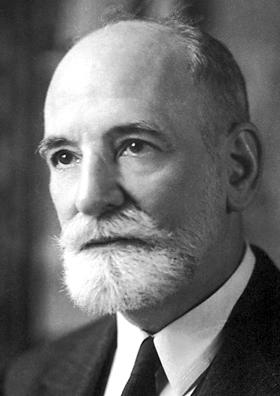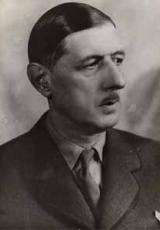René Cassin

"There will be no peace on this planet as long as human rights are violated somewhere in the world". Thus spoke René Cassin, the great French jurist and one of the fathers of the Universal Declaration of Human Rights. Nobody more than he had understood that human rights and peace were inextricably linked.
Descended from an old family of Jewish extraction, René Samuel Cassin was born on 5 October 1887 in Bayonne. After his brilliant studies at Lycée Masséna in Nice, he went to Law School in Aix-en-Provence. With a Licence degree in Literature, he took the first prize of the “Concours Général” of the Law Schools, became a doctor of legal sciences, economics and politics and obtained his “agrégation” degree in private law in 1919.
René Cassin was called up in 1914 as a master corporal. He was seriously wounded by machine gun fire at Saint-Mihiel on 12 October of that year. He received the War Cross with palm and the Military Medal. He was discharged and went on to teach at the university in Aix-en-Provence, then in Marseille, Lille and Paris. In solidarity with his former comrades in arms, he took part in creating one of the very first associations of war victims, in 1917. In 1929, he became the Vice-President of the High Council for wards of the state. He dedicated part of his activities to veterans until 1940 and pushed through several laws in favour of the victims of war.
As a peace activist, René Cassin sought to "erase all borders between men, affording each of them the same inalienable rights and the dignity of being". In 1924, he was a member of the French delegation to the League of Nations. After the Munich Agreement, which he condemned, he refused to take his seat in Geneva. From the early 1930s, having been warned of the dangers of Nazism by German Jews whom he had met during a trip to Palestine, he had foreseen a new conflict in Europe.
The Nobel Peace Prize for this defender of human rights
In June 1940, he refused the idea of an armistice and fled to England, presenting himself to General de Gaulle on 29 June. De Gaulle entrusted him with the mission of negotiating the agreement of 7 August 1940 with the British, an agreement that made de Gaulle a full-fledged ally and gave Free France a status that would later receive the legal and administrative structures that would ensure the continuity of the State and the Republic.
In 1943, at General de Gaulle’s request, he took on the leadership of the Alliance Israélite Universelle, which he was to lead until his death. Secretary Permanent of the Defence Council of the French Empire, President of the Legal Committee of Fighting France, and then of the Provisional Government of the French Republic (1941-1944), he was named Vice-President of the Council of State in 1944, a position he held until 1960.
As France’s delegate to the UN, René Cassin was part of a small group of specialists in charge of drawing up the Universal Declaration of Human Rights starting in 1946, which was adopted on 10 December 1948 by the United Nations General Assembly in Paris. He played a major role alongside the President of the Commission, Eleanor Roosevelt, wife of the late President of the United States; he made sure that the Declaration was "universal" and not "international", ensuring acceptance of the idea that economic, social and cultural rights are now considered as fundamental rights.
In January 1959, he was chosen by the Consultative Assembly of the Council of Europe to sit as a judge at the European Court of Human Rights, which he presided from 1965 to 1968. He received the Nobel Peace Prize in October 1968; the prize money enabled him to found the International Institute of Human Rights in 1969.
René Cassin also played an active role in France’s institutional life. In 1958, he presided over the committee in charge of drawing up the Constitution of the 5th Republic and, as President of the Council of State in 1959, he swore in the new President of the French Republic, General de Gaulle. He also played an essential role in creating the Constitutional Council, of which he was a member from 1960 to 1971.
Grand Cross of the Legion of Honour, Companion of the Liberation, Resistance Medal recipient, and Commander of Academic Palms, René Cassin died in Paris on 20 February 1976. His body was transferred to the Pantheon on 5 October 1987, for the centennial of his birth.


